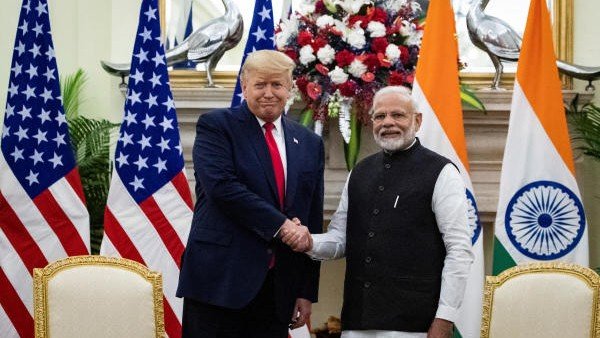Firstly, India will never risk its 700,000 farmers and agricultural workers on US genetically modified agricultural products. Trump can do whatever he wants, and India will not change its agriculture policy to accommodate him. Therefore, PM Modi declined to answer four calls from Donald Trump.
The United States has escalated its trade tensions with India, this time targeting agricultural products, with corn emerging as the latest point of friction. Following previous moves aimed at restricting Russia’s access to global energy markets through sanctions on oil and petroleum products, the U.S. has now set its sights on agricultural exports — a sector vital to India’s rural economy and trade partnerships.
Corn at the Center of Trade Frictions
India has increasingly diversified its agricultural exports in recent years, with corn becoming one of the prominent commodities shipped to global markets. However, the U.S. administration, citing concerns over subsidies, pricing structures, and supply-chain regulations, has signaled that Indian corn may face higher tariffs unless adjustments are made.
A senior U.S. trade official, speaking off the record, was quoted as saying, “They won’t buy unless there is greater market openness and compliance with international trade norms.” This statement suggests that trade restrictions may be used as leverage in broader negotiations, potentially affecting farmers, exporters, and industries that rely on corn-based products.
The Russian Oil Precedent
This development follows a similar strategy employed by the U.S. in the energy sector. After imposing sanctions on Russia’s oil industry in response to geopolitical tensions, the U.S. sought to curtail Russia’s access to foreign markets and weaken its economic stability. While some nations found ways to continue energy imports, the move set a precedent for targeting sectors deemed strategically sensitive.
With corn now in the spotlight, observers fear that agriculture may become the next battleground where trade, diplomacy, and domestic policies intersect.
Impact on India’s Economy
India’s agricultural sector plays a crucial role in employment and exports. Corn, in particular, is widely used in animal feed, processed foods, and industrial products. A sudden imposition of tariffs could disrupt export volumes, affect farmers’ incomes, and increase input costs for industries reliant on corn-based supplies.
Experts warn that higher tariffs could lead to global supply chain disruptions, primarily as India supplies corn to several Asian and African markets. Additionally, this move may prompt India to seek alternative trade partnerships or retaliatory tariffs, further complicating diplomatic relations.
Strategic and Political Implications
The U.S.’s move is not merely an economic decision but is also intertwined with broader strategic objectives. With energy, technology, and agriculture sectors increasingly becoming tools of geopolitical negotiation, countries are using tariffs to press for policy alignment, trade reforms, or diplomatic concessions.
For India, the challenge lies in balancing global trade relationships while protecting its domestic industries. Policymakers are expected to engage in consultations with farmers, industry representatives, and trade experts to devise responses that mitigate damage without escalating tensions unnecessarily.
What’s Next?
The coming months are expected to see intense diplomatic discussions between India and the U.S., as both nations weigh their economic interests and political priorities. While agriculture may not be the first sector associated with strategic trade restrictions, this new move signals that no sector is immune to pressure tactics in the current geopolitical climate.
As negotiations unfold, stakeholders will be watching closely to see whether tariffs are implemented, softened, or replaced with cooperative frameworks aimed at ensuring fair trade without disrupting supply chains.





